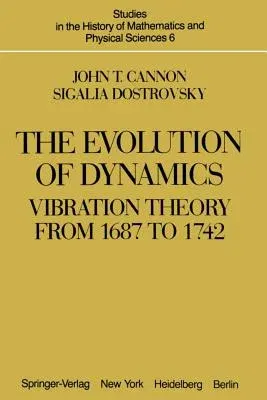J T Cannon
(Author)The Evolution of Dynamics: Vibration Theory from 1687 to 1742: Vibration Theory from 1687 to 1742 (Softcover Reprint of the Original 1st 1981)Paperback - Softcover Reprint of the Original 1st 1981, 6 December 2011

Qty
1
Turbo
Ships in 2 - 3 days
In Stock
Free Delivery
Cash on Delivery
15 Days
Free Returns
Secure Checkout
Part of Series
Studies in the History of Mathematics and Physical Sciences
Print Length
184 pages
Language
English
Publisher
Springer
Date Published
6 Dec 2011
ISBN-10
1461394635
ISBN-13
9781461394631
Description
Product Details
Authors:
Book Edition:
Softcover Reprint of the Original 1st 1981
Book Format:
Paperback
Country of Origin:
NL
Date Published:
6 December 2011
Dimensions:
23.39 x
15.6 x
1.07 cm
ISBN-10:
1461394635
ISBN-13:
9781461394631
Language:
English
Location:
New York, NY
Pages:
184
Publisher:
Weight:
281.23 gm

